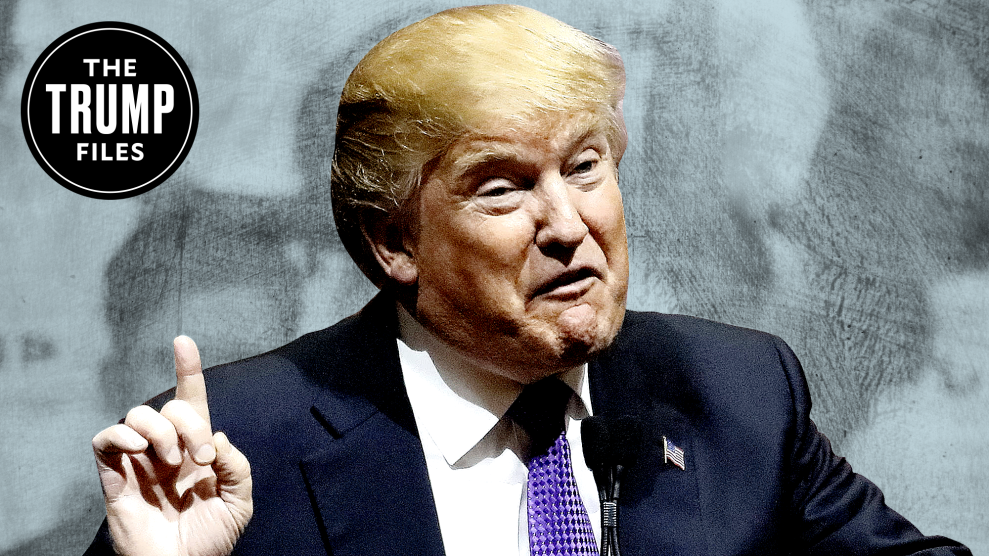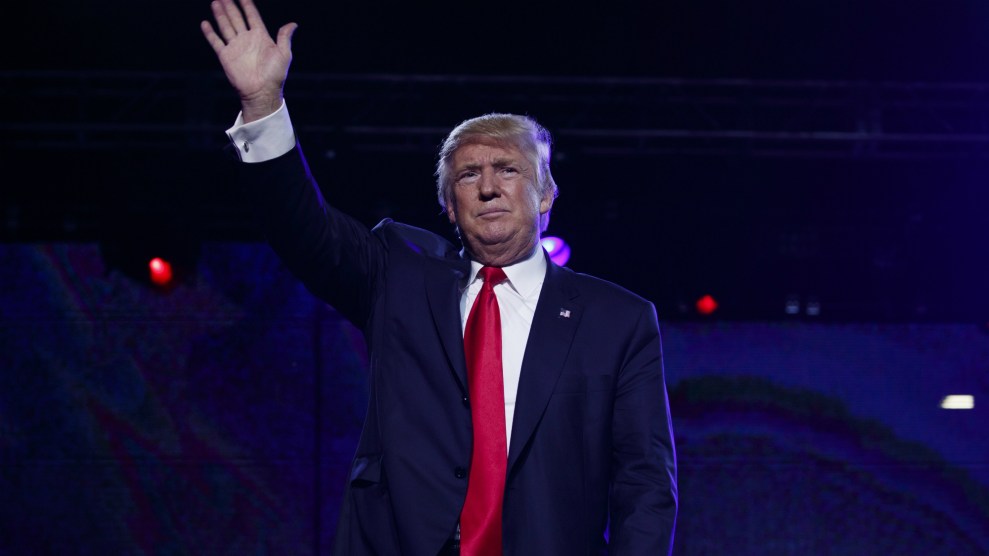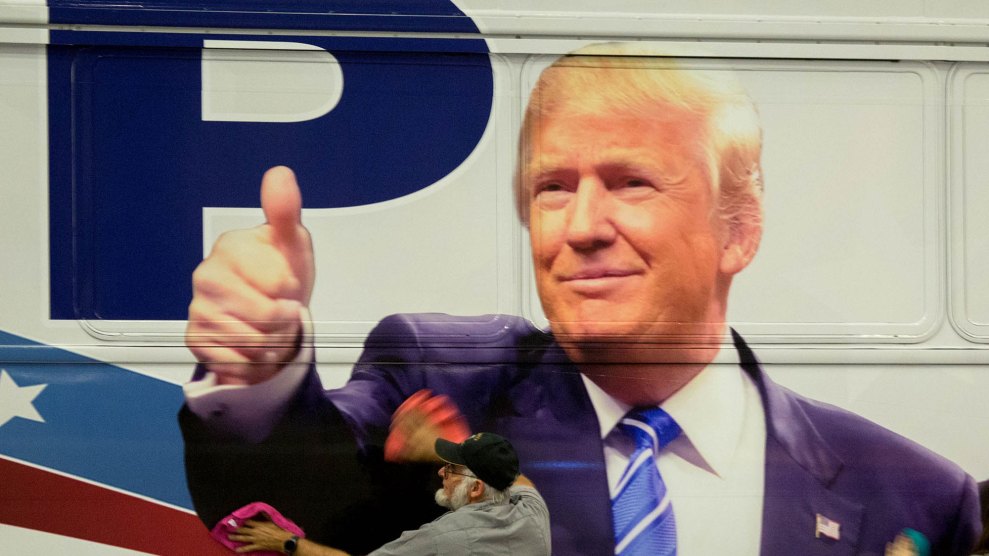
Mother Jones Illustration/Shuttershock
This post was originally published as part of “The Trump Files”—a collection of telling episodes, strange but true stories, and curious scenes from the life of our current President—on October 24, 2016.
When Donald made his first huge splash by building the Grand Hyatt hotel in Midtown Manhattan in the late 1970s, he did so on the back of an enormous, unprecedented tax break from the city. Trump, through his big-donor father, had close ties to then-Mayor Abe Beame (D). “Whatever my friends Fred and Donald want in this town, they get,” Beame once told the man who sold the hotel site to Trump. What Trump wanted, and got, was a deal in which a tax-exempt city agency bought the site of the hotel, leased it back to Trump for $1 a year, and spared him from paying property taxes for 40 years.
The massive tax abatement angered other developers, so the city made Trump agree to give back some of his profits each year as a rent payment. But when the Grand Hyatt became a success, the hotel cooked the books so it could pay the city less.
In 1986, according to CBS News, the Grand Hyatt had its best year ever. After getting $3.7 million from the hotel in 1985, city officials expected an even larger payment the next year. Instead, Trump ordered the Grant Hyatt to change its accounting methods to lower its reported profits. Despite its banner year, the hotel paid the city just $667,000.
Karen Burstein, the city’s auditor general, investigated the hotel’s accounting practices and called them “aberrant and distortive” in a 1989 report. Experts who reviewed the report for CBS News said it “detailed failures in basic bookkeeping, the seemingly sudden adoption of irregular accounting methods, and efforts to stymie officials.” That included being unable to find many of the hotel’s ledgers and other financial paperwork, which Burstein called “just inexcusable.” She concluded that Trump owed the city $2.9 million as a result of his maneuvers, but it doesn’t appear to have gotten the money back. The New York Times reported last month that the city may have recovered only $850,000 from Trump in a 2004 settlement.
“Trump leveraged tax forgiveness and clout into a deal where he had essentially no risk at all; there was no downside,” Burstein told the Los Angeles Times in 2011. “Then, having triumphed, he repaid his benefactors by excoriating them as inept, venal and useless.”
Trump sold his stake in the hotel in 1996, but the tax abatement is still in effect. While the city initially said it would cost it about $4 million a year, or about $160 million in lost revenue over its lifetime, it’s ended up being even costlier. According to the New York Times, the tax break has cost the city almost $360 million so far—and there are still four years left on the deal.













